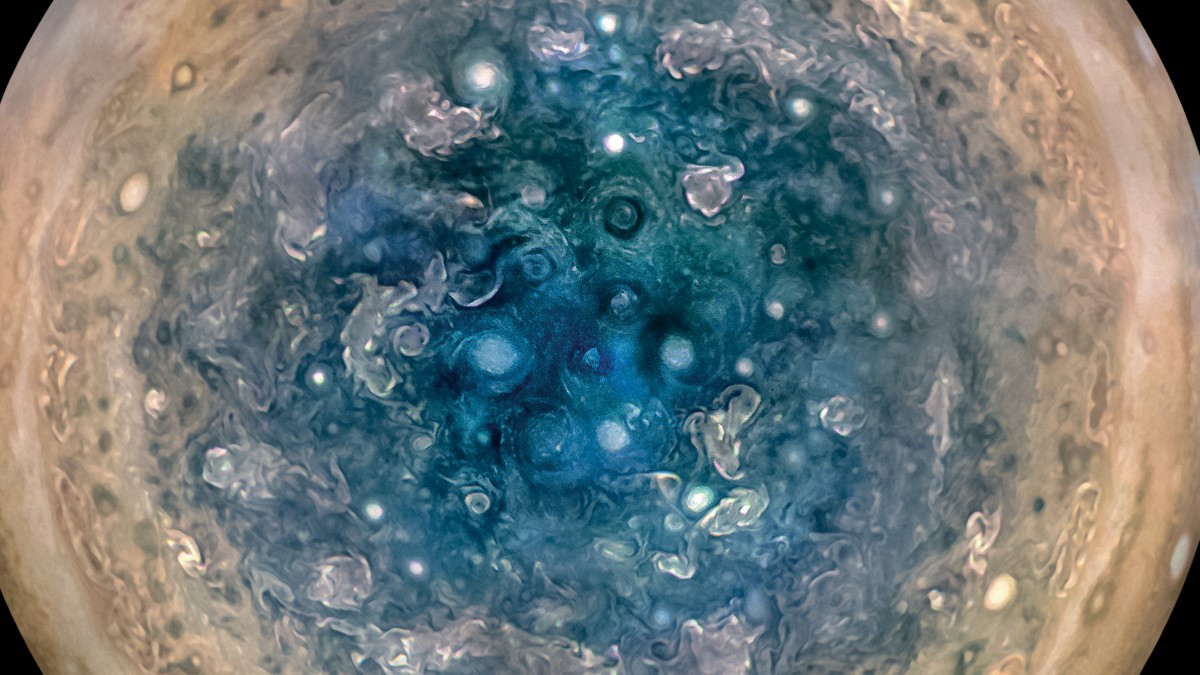Science
Juno Spacecraft Enhances Understanding of Jupiter’s Mysteries

The Juno spacecraft, launched by NASA in 2011, is significantly advancing our understanding of Jupiter, the largest planet in our solar system. In a recent episode of the Physics World Weekly podcast, principal investigator Scott Bolton discussed the mission’s ongoing contributions to planetary science with host Margaret Harris. Bolton detailed how Juno continues to deliver groundbreaking insights into the gas giant, reshaping our knowledge of not only Jupiter but also other gas giants in the universe.
Key Discoveries and Technological Resilience
During the conversation, Bolton highlighted several important findings that Juno has revealed about Jupiter’s atmosphere and magnetic field. The spacecraft’s JunoCam has provided stunning images of Jupiter and its moons, showcasing details previously unseen. These images have not only captivated the public but also offered scientists valuable data about the planet’s dynamic weather systems.
Although the Juno mission was initially expected to operate for only a few years, the spacecraft remains functional and continues to gather data despite the harsh conditions of Jupiter’s intense radiation belts. Bolton explained that the Juno team has successfully rejuvenated components that were damaged by radiation, demonstrating a level of resilience that will inform the design of future space missions.
Uncertain Future for the Juno Mission
Despite its achievements, the future of the Juno mission is in question. Currently, the mission is scheduled to conclude at the end of September 2024. Bolton addressed this uncertainty during the podcast, emphasizing the need for continued funding and support to extend the mission’s valuable research.
The insights gained from Juno are crucial for understanding not just Jupiter but the broader characteristics of gas giants. As scientists strive to learn more about these massive planets, the contributions of the Juno mission will likely play a pivotal role in the future of planetary science.
As the mission progresses, the scientific community and space enthusiasts alike continue to watch with anticipation, eager for the next revelations that Juno may uncover about our solar system’s largest planet.
-

 Health2 months ago
Health2 months agoNeurologist Warns Excessive Use of Supplements Can Harm Brain
-

 Health2 months ago
Health2 months agoFiona Phillips’ Husband Shares Heartfelt Update on Her Alzheimer’s Journey
-

 Science1 week ago
Science1 week agoBrian Cox Addresses Claims of Alien Probe in 3I/ATLAS Discovery
-

 Science6 days ago
Science6 days agoNASA Investigates Unusual Comet 3I/ATLAS; New Findings Emerge
-

 Science4 days ago
Science4 days agoScientists Examine 3I/ATLAS: Alien Artifact or Cosmic Oddity?
-

 Entertainment3 months ago
Entertainment3 months agoKerry Katona Discusses Future Baby Plans and Brian McFadden’s Wedding
-

 World2 months ago
World2 months agoCole Palmer’s Cryptic Message to Kobbie Mainoo Following Loan Talks
-

 Entertainment3 months ago
Entertainment3 months agoEmmerdale Faces Tension as Dylan and April’s Lives Hang in the Balance
-

 Entertainment3 months ago
Entertainment3 months agoLove Island Star Toni Laite’s Mother Expresses Disappointment Over Coupling Decision
-

 Entertainment2 months ago
Entertainment2 months agoMajor Cast Changes at Coronation Street: Exits and Returns in 2025
-

 World2 months ago
World2 months agoCoronation Street’s Asha Alahan Faces Heartbreaking Assault
-

 Entertainment2 weeks ago
Entertainment2 weeks agoStefan Dennis and Dianne Buswell Share Health Update on Strictly Come Dancing









